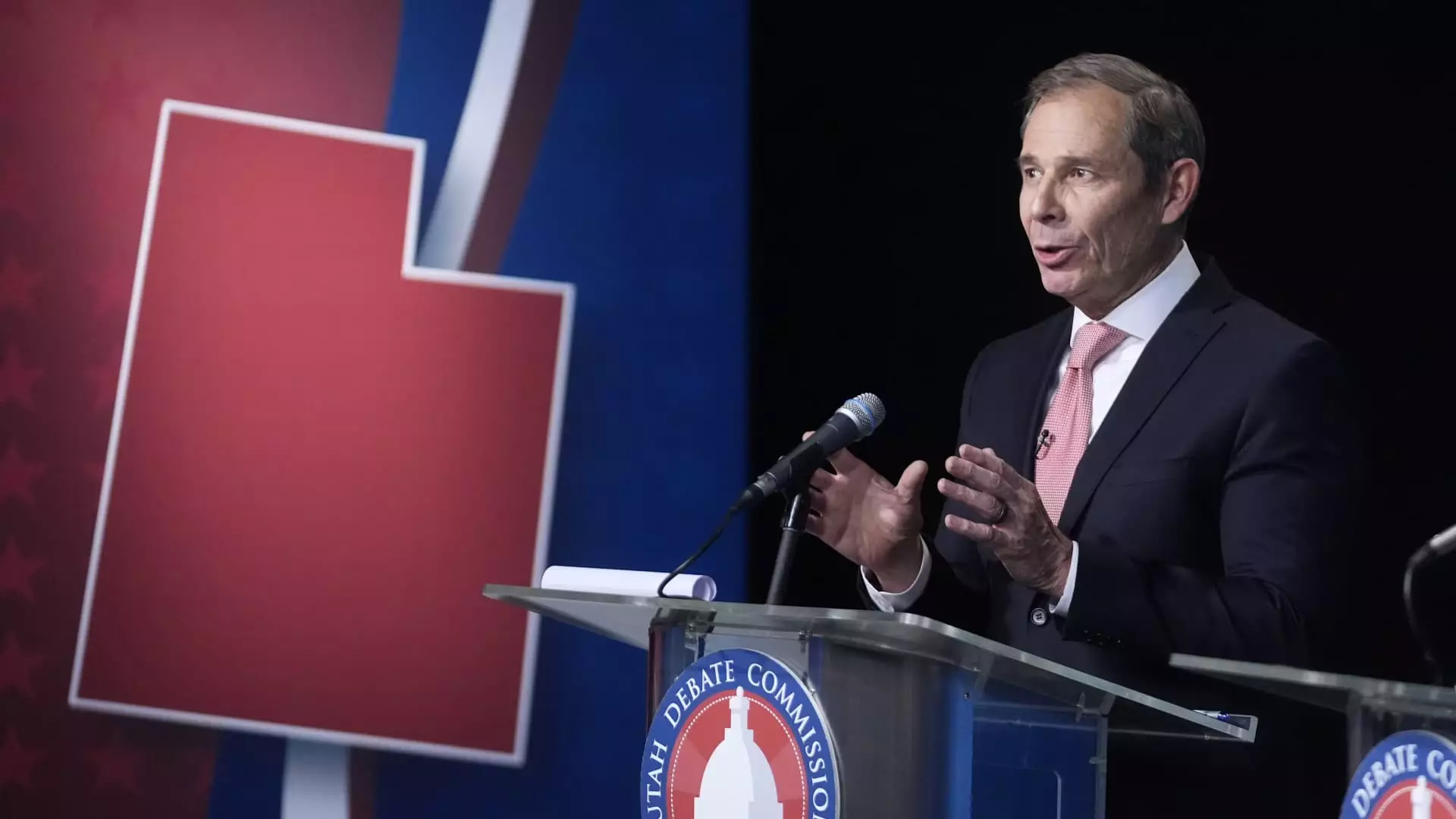In the ever-evolving landscape of American political campaigns, few sectors have gained the attention and donations that the cryptocurrency industry has harnessed over the past few years. One notable figure emerging from this nexus of finance and governance is John Curtis, a Republican congressman from Utah. As he navigates the political waters for Mitt Romney’s Senate seat, Curtis has not only positioned himself as a proponent of digital assets but has also attracted significant support from cryptocurrency advocates and organizations. This article investigates how Curtis’ approach to regulation, understanding of digital innovation, and alignment with industry needs is shaping his campaign.
Curtis’s background is rooted in telecommunications, a sector that has laid the groundwork for his insights into technology’s regulatory landscape. During a recent event at the Permissionless conference in Salt Lake City, Curtis recounted his interactions with fellow lawmakers concerning internet service providers. He highlighted a moment of realization when he inquired about lawmakers’ experience with internet speed tests, noting their bewildered expressions. This encounter catalyzed a deeper understanding: if policymakers do not grasp the nuances of technological experiences, their regulatory decisions can be disastrous.
This ability to bridge the technical and political realms is crucial, particularly in a field like cryptocurrency, which often eludes the grasp of traditional legislators. Curtis emphasized that for the government to impose effective regulations, an understanding of what cryptocurrency entails is essential—a viewpoint that resonated with the audience of crypto aficionados at the conference.
Curtis’ commitment to the crypto industry is reflected starkly in the campaign finance landscape. The Defend American Jobs PAC, a committee dedicated to supporting crypto-friendly policies, has poured over $1.9 million into his campaign, further cementing his reputation as a favored candidate within this sector. This financial support has not primarily been directed at Curtis alone; efforts have also been concentrated on diminishing the influence of his opponents, showing the strategic approach the crypto sector is taking during this election cycle.
It is evident that Curtis’s pro-crypto stance positions him favorably among an electorate that is increasingly receptive to digital asset technologies. A report by venture firm Andreessen Horowitz indicated that approximately 40 million Americans currently engage with cryptocurrency in some capacity. This demographic, often young and politically diverse, shows a strong inclination to support candidates who advocate for favorable policies toward cryptocurrencies—over 50% indicated they would vote for such candidates.
An interesting facet of Curtis’s platform is his belief in the power of self-regulation within the cryptocurrency industry. He argues that the best way forward for crypto ventures is to establish internal standards that maintain safety and security while simultaneously pushing back against excessive governmental regulation. This stance aligns with broader industry sentiment, which often sees government intervention as a potential hindrance to innovation.
Moreover, Curtis’s advocacy for a collaborative dialogue between lawmakers and industry stakeholders reflects a mature understanding of governance in the digital age. This approach promotes a balanced regulatory framework that can nurture the growth of blockchain technologies without stifling their potential through overreaching legislation.
The influence of cryptocurrency donations is not confined to Curtis’s race alone; it is indicative of a broader trend emerging in political financing. Crypto organizations have contributed substantial sums to candidates across party lines, focusing on those who are willing to support regulations that foster innovation rather than impede it.
The motives behind these contributions form a landscape rife with strategic interests. While some incumbents are outright opposed to crypto, like Democratic Sen. Elizabeth Warren, others, such as Ohio’s Sherrod Brown, face targeted campaigns aimed at mitigating their influence through significant financial backing for their opponents. This reflects an adaptive strategy employed by the crypto sector to safeguard its interests at both local and national levels.
As John Curtis campaigns for his Senate seat, it is evident that the cryptocurrency industry has found a formidable ally in him. His unique journey—from telecommunications to cryptocurrency advocacy—equips him with the insights necessary for navigating the intersection of technology and policy. The support he has garnered reflects not only a shift within Republican circles but also a critical evolution in political contributions, showcasing how emerging technologies are reshaping electoral dynamics. As this new frontier of political support continues to develop, Curtis may very well pave the way for a generation of pro-crypto politicians, heralding a transformative era in American governance.

